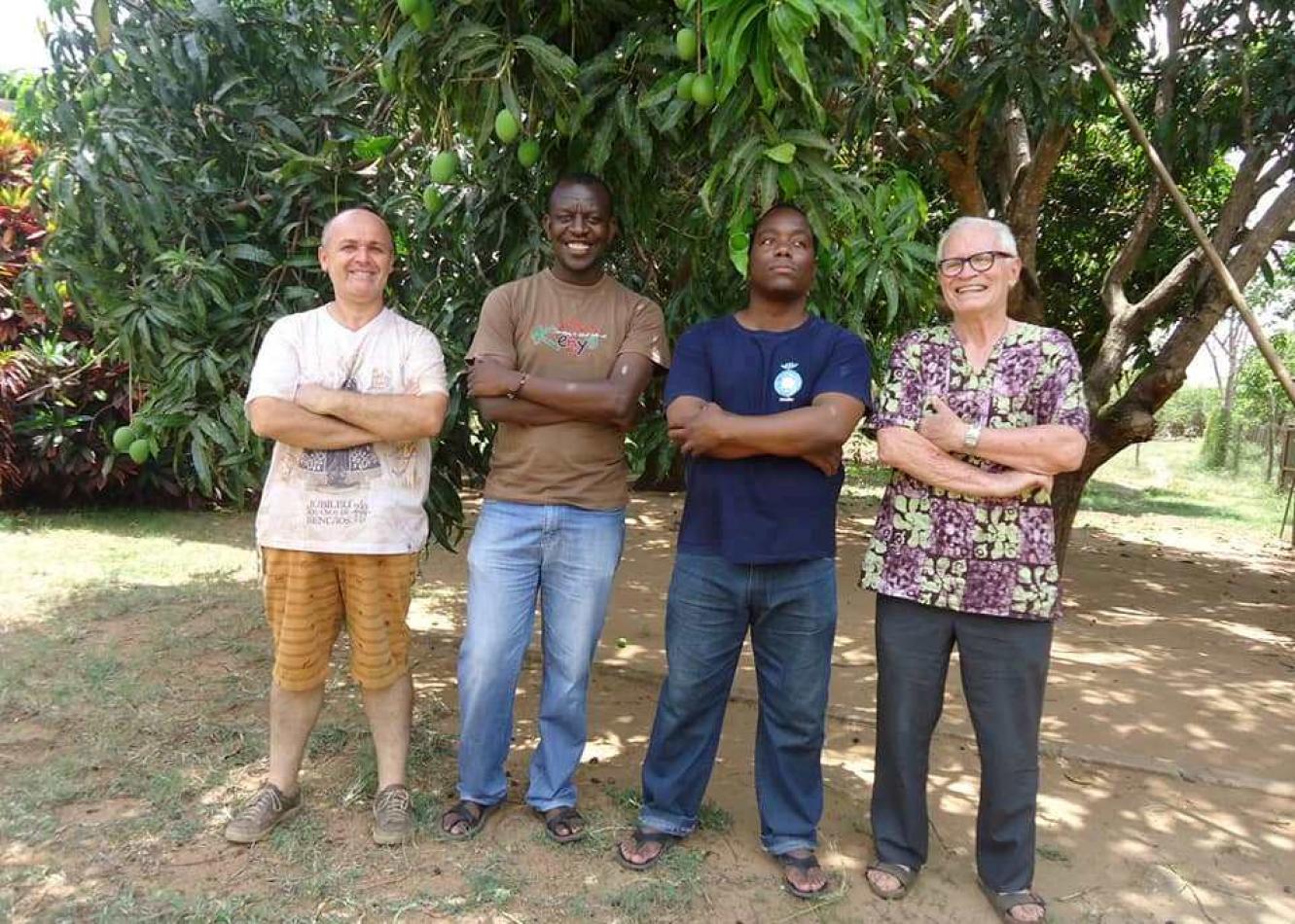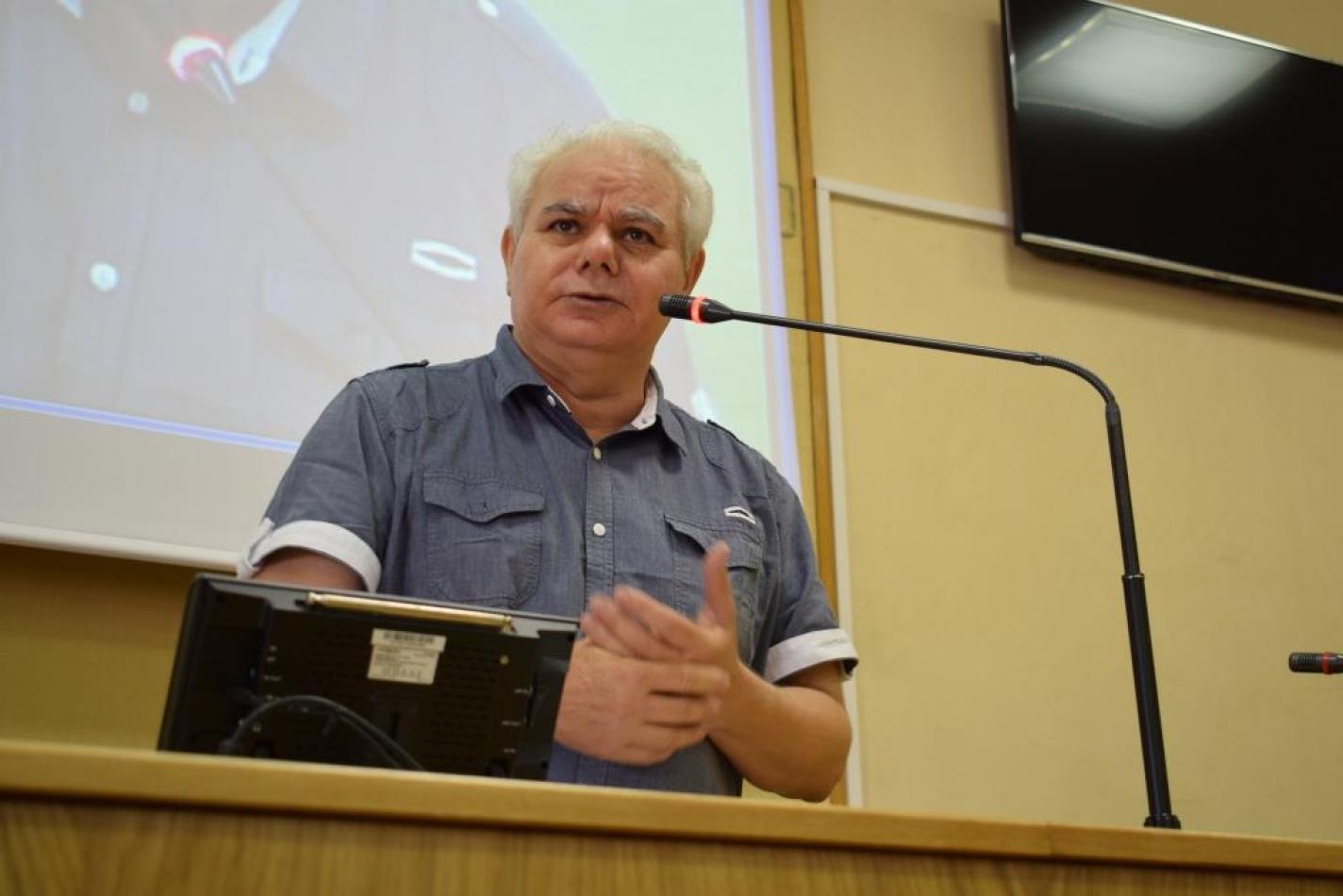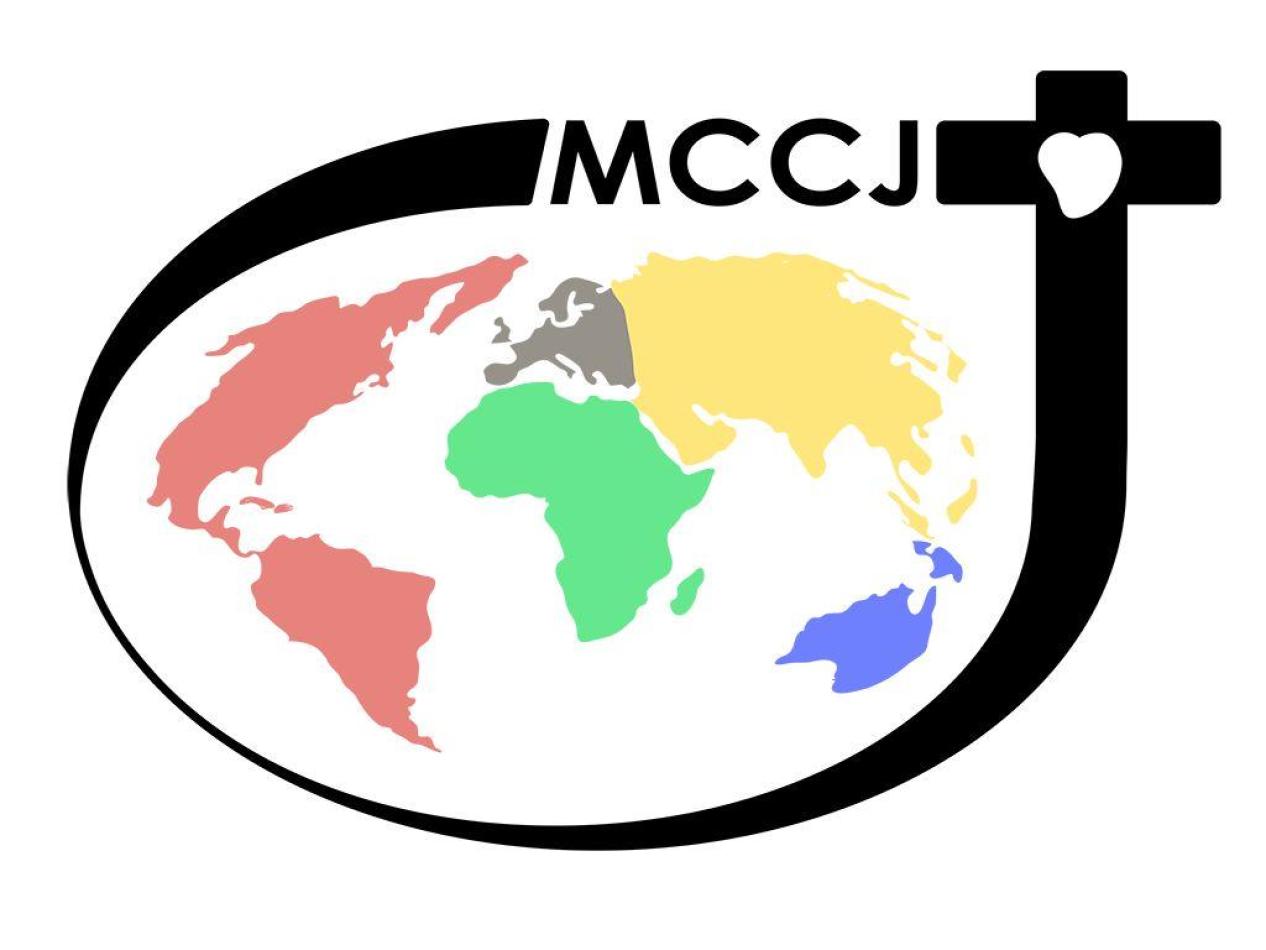Daniel Comboni
Comboni Missionaries
Institutional area
Other links
Newsletter
Thursday, January 10, 2019
This message of ours is meant to encourage each one of you and every community to take up with joy and energy the new formation theme proposed to us for this year of 2019. We are confident that this journey can bear such abundant fruit that we become witnesses of a new humanity in a situation that seems to be dominated by closure, suspicion and the rejection of others for the very reason that they are different. (The General Council)
LETTER INTRODUCING
THE YEAR OF REFLECTION ON INTERCULTURALITY
“So you are no longer aliens or foreign visitors; you are citizens like all the saints and part of God’s household. You are part of a building that has the apostles and prophets for its foundation and Christ himself for its main cornerstone. As every structure is aligned on him, all grow into one holy temple in the Lord; and you, too, are being built into a house where God lives, in the Spirit.” (Eph. 2, 19-22)
This message of ours is meant to encourage each one of you and every community to take up with joy and energy the new formation theme proposed to us for this year of 2019. We are confident that this journey can bear such abundant fruit that we become witnesses of a new humanity in a situation that seems to be dominated by closure, suspicion and the rejection of others for the very reason that they are different.
1. Our General Chapter of 2015, in order to make the dream of our vocation become a reality, has chosen various instruments some of which are themes for each year.
The General Council in the “Guide for the implementation of the XVIII General Chapter and the Programming of Activities” chose the theme of interculturality for this year.
It is an important theme for us and its importance is emphasised also at the ecclesial level since many other ecclesial Institutes and Organisations also understand its urgency. In society in general, due to the challenges of displacement for reasons of work, tourism and migration, many documents have been drafted by organisations and institutions.
2. For us, this is a theme of on-going formation. We will not limit ourselves to mere theoretical reflection, but deepen the meaning of the words: internationality, multi-culturality, inter-culturality, etc.
We see this theme of Ongoing formation as a help to understanding our experience, the discovery and rediscovery of this gift and its potential that forms part of our charism; of the challenges we live with: the joys and tensions, the difficulties and richness that we experience when we bring this gift to fruition. We are not content with what is merely superficial or to suffer or accept passively the situation of interculturality as if it were something happening to us by mere chance.
Reflection, prayer and sharing at various levels on this theme must lead us to take up concrete commitments that may include a change in the style of relations among ourselves, different choices even in the more practical aspects of our community life and new ways of carrying out our missionary service. For this reason we wish to form ourselves to be competent, to engage in a project that will make this gift a force for life and growth.
3. Our experience. In our experience, appreciation for the gift of interculturality is an integral part of our vocation as Comboni Missionaries. Right from the beginning, the Spirit brought Saint Daniel Comboni to live the mission of the regeneration of Africa with Africa as something “catholic”: “The Work must be catholic, not just Spanish or French or German or Italian” (Writings 944).
Certainly, for him this catholicity meant being above political and colonial powers; and for this reason he wanted the whole Church to be involved in this service to the poorest and most abandoned: in his Postulatum, he asks that dioceses and Institutes place their best members at the disposal of the mission: priests, religious men and women and lay people. Even if Comboni could not think in terms of ‘interculturality’, we know that the catholicity that was present in the dream of Comboni means much more than could be understood in that historical moment. This is because it is not a tactical choice, the taking of an opportunity or the result of efficiency requirements but a gift of the Spirit who bears in himself the potential that we discover and rediscover in the course of history.
Historically, there have been times when differing visions of the mission, consecrated life as related to missionary service, languages and customs caused tensions which even caused separation. In all these moments there were political factors as well as the inability to dialogue to understand and be understood, to accept differences and to coexist with them in a way that was not resignation but enrichment. Failure occurred when a single imposed model was attempted in which all was already contained and understood, … and others simply had to adapt to it.
Historically, we have had many moments of encounter and opening and of mutual enrichment through the communion of our differences. There has been the great “sign” of the reunification of the Comboni Institutes and other “signs” that were smaller but, like a seed, fecund. The year 2019 is the fortieth anniversary of the “great sign” of the reunification of the two male Comboni Institutes. To realise the dream that has become a sign, many confreres, especially in Spain, South Africa and Peru, collaborated with the plan of God.
As we live, together with others in the Church and in society, breathing the new air brought by the Council, rediscovering the richness of our charism, a new vision of mission that contemplates the leadership of the local Churches that breaks through the division between Mother Churches and Daughter Churches and instead progressively lives the reality of Sister Churches that are all co-responsible for the entire mission of the Church, we opened up to vocations from the many countries and Churches where we are present. During this transition, some of us were afraid while some were passive and still others were enthusiastic, without necessarily understanding all the challenges that this choice brought with it or how to meet them; others, aware that this choice was not a response to the drop in vocations, especially in Europe, but obedience to the Holy Spirit who is present and works through our Comboni charism, began to work towards welcoming the potential contained in this gift of our charism and to live the conversion it brings.
4. In fact, many young people became Combonis for the very reason that they were struck and attracted by the Comboni charism.
This choice means that the Institute is a body where there coexist new generations, new cultures, new types of formation, new visions of the reality of the world, the situations of poverty, of the mission and of the Church. To prevent the emergence, within this coexistence, of parallel bodies, a continual dynamic of “us–you”, or divisions between those who accept or reject, or between those who were around previously and those who came later, ... it is necessary that all of us engage completely in the process. Interculturality involves the inculturation of the charism and of formation. It therefore also becomes a process of inter-culturation.
The living out of this gift as a renewing force cannot be left to chance as if it were a question of “spontaneous generation”. Living out the richness and the challenges of interculturality as a style of life demands competence made up of motivations, attitudes and commitments at personal and community levels. This is why, in our Institute, we find the fruits of our reflection and indications regarding this dimension of our charism in many documents. For example:
- The Chapter Documents of 1969 which somehow speak of this on pp. 80-83 and 311-314.
- Our Rule of Life, especially No. 18.
- The Chapter Acts of 1997 in Nos. 51-52 and 148.
- In January 1999, the General Council sent out to all members a long letter bearing the title: “Interculturality in the Comboni community”.
- The Chapter Acts of 2003 speak extensively of it in Nos. 4, 17, 26, 27.1, 35.9, 52.5, 73, 74.7, 82 and 112.
- The last Chapter, held in 2015, devotes the whole of No. 47 to it, and there we also find an invitation to all the circumscriptions to avoid closing themselves in by having only radical members, but to have members from many other provinces.
- The Ratio of formation places interculturality among the essential elements of our charism (Nos. 158-159) and therefore outlines some indications to emphasise how the verification of this ability is an element in the discerning the Comboni vocation while also speaking of the need for journeys of formation.
All of these documents stress the beauty of this gift, the challenges that living it brings, the benefits and difficulties that come to light and give indications as to how to live it profitably.
5. Interculturality is a gift that becomes a project.
5.1 Before all else it is a project of God who created man in his own image and likeness and, for this very reason, as a relationship. The Chapter Acts of 2015, in the chapter about “Persons” underline this ability to relate that allows the person to become more human:
“The call to go out of self towards others reiterates the Christian vision of the person as a being in ‘relationship’… We want to have a relationship of communion with God and share this with those with whom we live... We feel a deep need for a spirituality that heals and makes us whole, capable of integrating our humanness and that of others with its limits, frailties and inconsistencies.” /CAC ’15, 27-30
In a relationship, man discovers his gifts and his limits, finds himself rich but, at the same time, unfulfilled. It is only in a relationship of mutual sharing that the person grows and becomes itself, growing to full maturity.
For this reason, interculturality is a journey that helps the person to grow.
5.2 In his plan of salvation, God has placed different peoples in relationships with each other.
It is said of Abraham that his tent was always open for all to enter, find hospitality and share their gifts.
When God brought the children of Israel out from slavery in Egypt, many other people joined them: “people of various sorts joined them in great numbers” (Ex 12, 38). God operates with all of them: with the same mercy and power, making them all cross the sea, giving them light and shade, food and water and protection during the desert journey. With them all, without distinction, God made a covenant, giving them the “Ten Words”, to make them all one people: “You will be for me a kingdom of priests, a sacred nation” (Ex 19, 6). All the legislation aimed at helping to build up fraternity in liberty and dignity, overcoming rivalry, jealousy and the greed for riches and power. But the work remained “incomplete”. In fact, when they entered the Promised Land, the territory was divided among them “tribe by tribe”. This inability to live together with those who are different would later lead to divisions and wars.
In the Acts of the Apostles, too, we find this difficulty in building relationships that are not founded on the supremacy of one group over another but on “faith that works through charity”. We see this in the episode of the widows of the proselytes and those of the Hebrews (Ac 6, 1 ff); in the displeasure of the early communities with Peter who visited a pagan and stayed at his house, eating with him (Ac 10-11), and in the suspicion aroused at the foundation of the first community in Antioch including people of Greek culture (Ac 13), and in the desire to impose on everyone, as a condition for salvation, the laws and traditions of a single group.
Communion is not born of a search for compromise but from the discovery of the source and foundation of fraternity: faith and mutual love (Ac 15). It is through our incorporation into Christ that we are in communion with one another, uniting and not abolishing our differences without allowing ourselves to be devoured by them (Ga 3, 27-28; Col 3, 11). The creation of an alliance between such diverse people is a process that involves confidence in the gift received and patience, fatigue and commitment, even suffering, and the acceptance of mistakes and defects, transforming them into starting points and strength to continue the journey.
Interculturality is thus a gift for the community.
5.3 The project of God is for us to journey towards the new creation, a new heavens and a new earth in which dwells that justice which, justifying every person by grace, makes all people brothers and sisters, breaking down frontiers, walls and hatred, … In Christ there are no longer foreigners or visitors but all are co-heirs and co-participants of the same grace: the gift of his Spirit through whom God creates humanity anew, an immense humanity beyond counting composed of people “of every tribe, tongue, people and nation”, who recognise that salvation belongs to God (not to an institution) and to the Lamb (Rv 7, 9-10). It is the mature fruit of the gift of the Spirit imparted at Pentecost. In Babel, the greatest evil is not diversity but the unanimity that sees the growth as a feeling of omnipotence and generates oppression. At Pentecost, while all hear, each in their own language, the marvels of God, their diversity becomes the fragments of a mosaic which, only if placed together, reveal the face and the heart of God as the Father of humanity.
To this, the Church and in it our Institute become a witness and its servant. It is not uniformity but communion in diversity on the one foundation which is Jesus Christ – and nobody can lay any other (1 Cor 3, 11). This is the sign of the new humanity.
Pope Francis, in his Apostolic Exhortation Evangelii Gaudium, indicates some important points when he emphasises that the whole is greater than the part, the tension between the global and the local, and appeals against closure:
The whole is greater than the part, but it is also greater than the sum of its parts…
Nor do people who wholeheartedly enter into the life of a community need to lose their individualism or hide their identity; instead, they receive new impulses to personal growth. The global need not stifle, nor the particular prove barren. … Here our model is not the sphere, which is no greater than its parts, where every point is equidistant from the centre, and there are no differences between them. Instead, it is the polyhedron, which reflects the convergence of all its parts, each of which preserves its distinctiveness. It is the convergence of peoples who, within the universal order, maintain their own individuality; it is the sum total of persons within a society which pursues the common good, which truly has a place for everyone.. (Ev G 235-237).
Interculturality is thus a gift for the mission.
6. Grace and challenge: interculturality is first of all a grace, a charism that possesses the power of the seed to become a tree that bears fruit. It becomes a life project that requires us to become “competent” people so as to be able to assume it and carry it out, to rejoice for this gift so that those who live it may grow their fullness, personally, as communities and as missionaries of the Kingdom, “capable” of accepting the demands, the sacrifices, the tensions and the challenges of this gift’.
May Saint Daniel Comboni intercede for us: may he make us “holy and capable” to bring the gift of interculturality to fruition.
The General Council
The General Secretary for Formation
DE_Lettera_per_introdurre_l’anno_di_riflessione_sull’interculturalità
EN_Lettera_per_introdurre_l’anno_di_riflessione_sull’interculturalità
ES_Lettera_per_introdurre_l’anno_di_riflessione_sull’interculturalità
FR_Lettera_per_introdurre_l’anno_di_riflessione_sull’interculturalità
IT_Lettera_per_introdurre_l’anno_di_riflessione_sull’interculturalità
PT_Lettera_per_introdurre_l’anno_di_riflessione_sull’interculturalità





